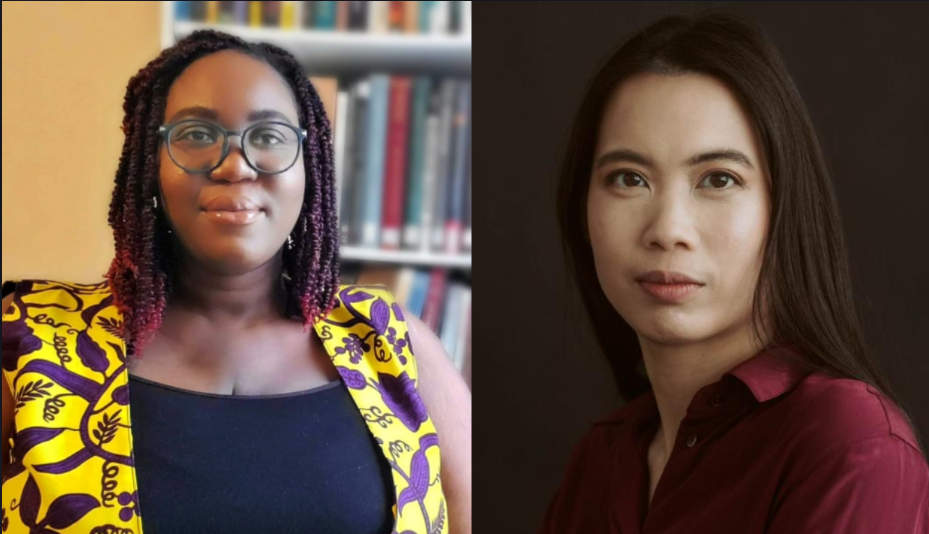
The Dietrich School is proud to announce that Dela Kuma, Assistant Professor in the Department of Anthropology, and Kaliane Ung, Visiting Assistant Professor in the Department of French and Italian, have been awarded 2024 ACLS Fellowships from the American Council of Learned Societies (ACLS). The ACLS Fellowship Program supports scholars who are poised to make original and significant contributions to knowledge in any field of the humanities or interpretive social sciences.
Kuma and Ung were two of 60 exceptional early-career scholars selected through a multi-stage peer review from a pool of 1,100 applicants. ACLS Fellowships provide up to $60,000 to support scholars during six to 12 months of sustained research and writing. Awardees who do not hold tenure-track faculty appointments receive a supplement of $7,500 for research or other personal costs incurred during their award term.
Kuma’s research, “Africanized Tastes and Consumer Power,” is an ethnoarchaeological history of the impacts of local tastes and consumer practices on regional and global trade networks in West Africa, specifically Ghana, which experienced a period of extended trade following the 1807 abolition of the Atlantic trade in enslaved people, described by historians as the “legitimate” trade era. The book analyzes the significant global demand for and export of botanical commodities, such as palm oil, supplied by hinterland economies, and the socioeconomic encounters that impacted daily life in hinterland Ghana. Entanglements are theorized through such concepts as “nkudzedze,” – the local embodiments of taste among the people of Amedeka (Ghana) – to chart a material history of how local consumer practices grounded in indigenous epistemologies shaped global production economies, shifting the narrative to local consumer power to reimagine practices and power relations during legitimate trade.
Ung’s research, “Wounded Writings: Disability in France”, focuses on first-person accounts of disability across literary genres. The manuscript is structured around four “situated experiences” of disability: the war wound, mental illness, neurodivergence, and skin disorders. By investigating writing as a performative and transformative act, it offers a reassessment of agency in the face of adversity, through self-invention. It argues that writing is a tool for survival when illness and suffering alter the body and claims that, in modern and contemporary France, the wound becomes a site of enunciation as well as a site of transformation. The book will have an online companion website.
